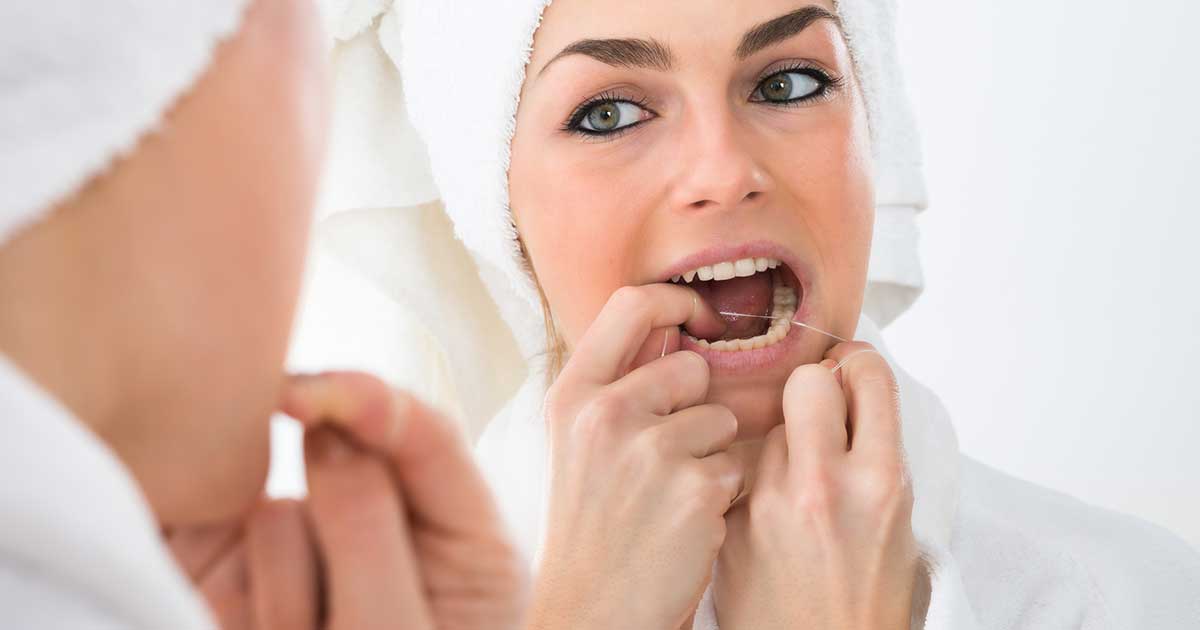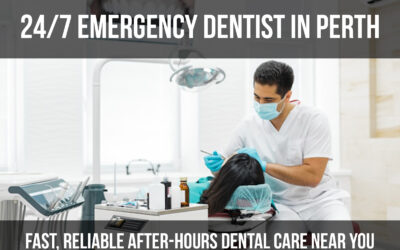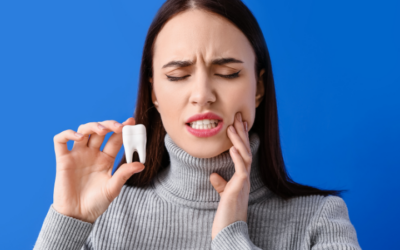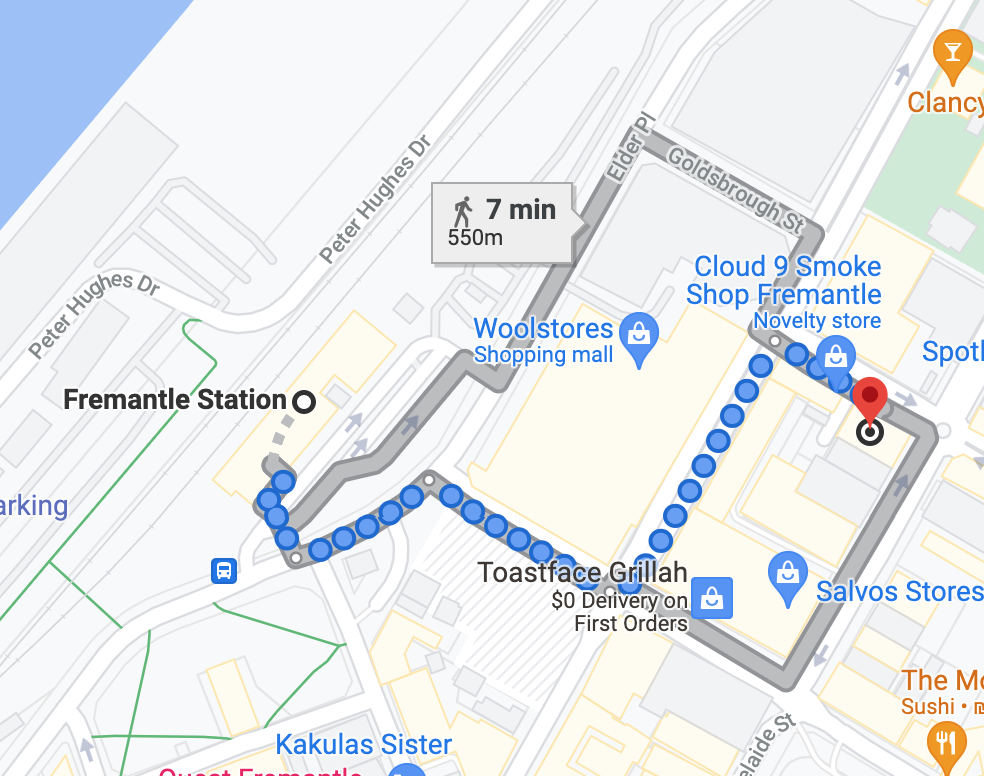Good oral hygiene is the key to a healthier smile for life. At On Point Dental, we will help you and your family to develop comprehensive oral hygiene plans so that you’ll only need to visit our clinic for your regular check-ups.
What are the benefits of good oral hygiene?
Prevention is always better than treatment when it comes to your oral health, and by following your dentist’s oral hygiene advice, you will be less likely to need dental procedures such as extractions, fillings and root canals.
Brushing and flossing your teeth daily and maintaining a diet low in sugar helps to prevent plaque build-up. Plaque can cause a number of problems with your teeth and gums.
Good oral hygiene can prevent:
- Tooth decay, yellowing and erosion
- Gum disease (periodontal disease)
- Heart disease and other systemic diseases
- Bad breath
What does good oral hygiene involve?
Teeth brushing
Brush your teeth at least twice a day using fluoride toothpaste. Make sure you brush every part of your mouth, including your tongue and gums.
Floss and mouthwash
Floss between your teeth after brushing at least once a day to remove trapped food. Your dentist may also recommend gargling with a fluoride mouthwash after every meal.
Healthy diet
Bacteria feed on sugar, so you can prevent the spread of plaque by reducing the amount of sugar in your food and drink. You should also avoid hard foods and acidic drinks if these are causing damage to your teeth.
What happens during oral examinations?
We recommend that you schedule an oral examination at our dental clinic every six months. This gives our dentists the opportunity to catch early stages of tooth decay and gum disease, making it easier to treat, so you are less likely to need a dental procedure.
During your oral exam, we will also clean and scale your teeth to remove any plaque that may already be present. We aim to create a casual and relaxed atmosphere at our clinic to help people of all ages enjoy a positive experience.
Oral Hygiene – FAQs
What is oral hygiene?
Oral hygiene refers to the practices and habits individuals adopt to maintain the health of their mouth, teeth, and gums. It involves regular brushing using fluoride toothpaste, flossing between teeth daily, and using mouthwash.
Additionally, a balanced diet, limiting sugary foods and beverages, and regular dental check-ups and cleanings play vital roles in maintaining good oral hygiene. These practices help prevent dental issues like cavities, gum disease, and bad breath while promoting overall oral health.
Risk factors associated with poor oral hygiene include not regularly brushing, flossing, and visiting your dentist – all these increase the accumulation of plaque and bacteria, leading to an increased risk of cavities, gum disease, and tooth decay.
Lifestyle choices such as smoking and consuming sugary or acidic foods and beverages contribute to enamel erosion, gum irritation, and a higher likelihood of developing oral health issues.
Additionally, certain medical conditions like diabetes and immune system disorders can compromise oral health, making individuals more susceptible to gum disease and oral infections.
Inadequate oral hygiene practices significantly heighten the risk of dental problems, emphasising the importance of maintaining good oral hygiene habits for overall oral health and well-being.
How to have perfect oral hygiene?
To maintain good oral hygiene, it is essential to follow a consistent dental care routine. This includes brushing teeth thoroughly twice a day using fluoride toothpaste, ensuring each session lasts for at least two minutes. The goal is to remove plaque from teeth.
Daily flossing also helps remove plaque, including removing food particles between teeth that a toothbrush can’t reach. Using an antibacterial mouthwash can further aid in reducing bacteria and maintaining fresh breath.
Moreover, consuming a balanced diet rich in fruits, vegetables, and calcium while limiting sugary snacks and acidic beverages helps support oral health.
Making sure you schedule a regular dental check up and clean is crucial to ensure early identification of potential dental issues and addressing them. Ready for your next check and clean? Book your appointment now!
How often should oral hygiene checks take place?
For most individuals, it’s recommended to visit the dentist for dental checks and cleans every six months. This is considered a general dental service and is often covered by health insurance.
However, the frequency of dental visits can vary based on an individual’s oral health needs. Some people, such as those with specific dental conditions or a higher risk of oral issues, may require more frequent visits as advised by their dentist.
Regular check-ups allow the dentist to assess oral health, identify potential problems early, perform professional cleanings, and provide guidance on maintaining good oral hygiene habits. Following the dentist’s recommended schedule for oral hygiene checks helps prevent dental issues and ensures optimal oral health.
What is a good oral hygiene care plan for long term care?
An oral hygiene care plan for long-term care involves a comprehensive approach to maintaining optimal oral health. Here’s a guideline:
1. Daily Brushing and Flossing: Encourage regular brushing with a fluoride toothpaste at least twice a day and flossing once a day. Use a soft-bristled toothbrush and gentle circular motions to clean teeth and gums thoroughly. For those with limited dexterity, consider adaptive tools like electric toothbrushes or floss holders.
2. Regular Dental Check-ups: Schedule regular dental visits every six months or as your dentist recommends. These visits allow for professional cleanings, early detection of oral issues, and personalised advice on oral care.
3. Healthy Diet and Hydration: Promote a balanced diet rich in fruits, vegetables, and calcium while limiting sugary snacks and acidic beverages. Encourage adequate water intake to maintain saliva production, which helps in protecting teeth against decay.
4. Use of Fluoride and Mouthwash: Consider fluoride treatments if recommended by your dentist to strengthen teeth. Use an alcohol-free mouthwash to reduce bacteria and freshen your breath, following the dentist’s guidance.
5. Special Care for Dentures or Oral Appliances: For those with dentures or oral appliances, ensure they are cleaned daily and properly fitted. Remove and clean dentures regularly to prevent infections or irritation. Our team at On Point Dental can provide more assistance with fitting your dentures or mouthguards.
6. Education and Assistance: Provide education and guidance on proper oral hygiene techniques, especially for individuals who require assistance, such as seniors or those with disabilities. Caregivers should assist with oral care as needed.
7. Monitoring and Communication: Regularly monitor the individual’s oral health for any changes, such as bleeding gums, mouth sores, or discomfort, and communicate these observations to the dental professional for timely intervention.
Implementing and maintaining a consistent oral hygiene care plan tailored to individual needs promotes long-term oral health and helps prevent dental issues. Come chat with our team at On Point Dental today to ensure your care plan is right for you!
How can I prevent cavities and tooth decay?
Prevention is always better than cure. It’s important not to underestimate the importance of oral hygiene. Preventing cavities and tooth decay involves maintaining good oral hygiene practices.
This includes brushing your teeth thoroughly twice daily with fluoride toothpaste, flossing daily to remove plaque between teeth, and using mouthwash to reduce bacteria. Additionally, having a balanced diet low in sugary and acidic foods and drinks helps prevent enamel erosion and decay.
Regular dental check-ups, offered as part of general dental services, every six months allow us to detect any early signs of decay and provide preventive treatments like dental sealants or fluoride applications. Following these practices consistently can significantly reduce the risk of cavities and tooth decay.
What are the best techniques for brushing and flossing?
The best technique for brushing involves using a soft-bristled toothbrush and fluoride toothpaste. Hold the brush at a 45-degree angle to the gums and brush gently in circular motions, ensuring you cover all tooth surfaces, including the fronts, backs, and chewing surfaces. Brush for at least two minutes twice a day, making sure to reach the gum line and clean your tongue as well.
For flossing, use about 18 inches of dental floss, wrapping it around your fingers and gently guiding it between your teeth. Curve the floss into a ‘C’ shape against the side of each tooth, moving it up and down to remove plaque and debris. Be gentle to avoid injuring the gums. Flossing should be done at least once a day to clean between teeth and along the gum line, where a toothbrush can’t reach.
Still confused? Come by our clinic in Fremantle and we’d be happy to give you some free pointers!
Is it necessary to use mouthwash, and if so, which type is recommended?
While not absolutely necessary, using mouthwash as part of your oral hygiene routine can offer additional benefits. Mouthwash can help with plaque removal, control bacteria, and freshen breath.
It’s important to choose a mouthwash that suits your specific oral health needs. Look for a mouthwash containing fluoride to strengthen teeth and prevent cavities. If you have specific concerns like gum disease, your dentist may recommend an antibacterial or therapeutic mouthwash.
Always follow the instructions on the mouthwash label and consult your dentist for personalised recommendations tailored to your oral health.
What are the signs and symptoms of gum disease, and how can it be prevented?
The signs and symptoms of gum disease, also known as periodontal disease, can include:
- Red, swollen, or tender gums.
- Gums that bleed easily, especially during brushing or flossing.
- Persistent bad breath or a bad taste in the mouth.
- Receding gums or changes in the way teeth fit together when biting.
- Loose or shifting teeth.
These issues often arise due to poor oral hygiene.
Preventing gum disease involves maintaining good oral hygiene practices, including brushing teeth twice a day with fluoride toothpaste, flossing daily to remove plaque and debris between teeth, and using an antibacterial mouthwash if recommended by your dentist.
Avoiding smoking, eating a balanced diet, and managing stress also contribute to preventing gum disease. These are all common risk factors associated with poor oral hygiene.
If you notice any signs of gum disease, it’s essential to seek prompt advice from a dentist to prevent its progression.
Regular dental check-ups and professional cleanings every six months can also help detect and treat gum disease in its early stages. Think it’s time for your next check up? Book your appointment now.
What is periodontitis?
Periodontitis is an advanced stage of gum disease characterised by inflammation and infection that damages the soft tissues and bone supporting the teeth.
It typically begins as gingivitis, an early stage of gum disease caused by plaque buildup along the gumline. When left untreated, gingivitis can progress to periodontitis. This gradual process emphasises the importance of oral hygiene – ensuring good dental hygiene practices early on to ensure regular plaque removal can avoid issues like this later in life!
Periodontitis arises as the bacterial plaque hardens into tartar, leading to the formation of pockets between the gums and teeth. These pockets can harbour more bacteria, causing the body’s immune system to respond, resulting in inflammation, gum recession, bone loss, and potentially tooth loss.
Individuals affected by periodontitis may experience symptoms such as swollen, tender, or bleeding gums, persistent bad breath, loose teeth, and changes in the way teeth fit together while biting or chewing.
Effective periodontitis oral hygiene involves thorough daily dental care practices to manage the condition and prevent its progression. This includes regular brushing with a soft-bristled toothbrush and fluoride toothpaste, flossing or using interdental brushes to remove plaque from teeth and along the gumline, and using antimicrobial mouthwash under the guidance of a dentist.
Professional dental cleanings and periodontal treatments by a dental professional are crucial to remove hardened plaque and tartar, reduce inflammation, and control the progression of periodontitis. Maintaining a consistent oral hygiene routine and seeking timely dental care play essential roles in managing periodontitis and preserving oral health.
Are there specific dental care practices recommended for children?
For children, establishing good oral hygiene habits early is crucial. Parents should start cleaning their baby’s gums with a soft cloth and transition to a small, soft-bristled toothbrush as teeth erupt.
Children should brush their teeth twice a day with fluoride toothpaste and floss once a day when they have two teeth touching. Creating a healthy oral hygiene routine early on will do wonders for their long term dental health.
Regular dental check-ups are also important for monitoring growth, preventing cavities, identifying poor oral hygiene practices and applying dental sealants or fluoride treatments to protect teeth.
If your child is afraid of dentists, look no further! Our gentle and friendly team in Fremantle has a great track record of helping children overcome their fear of the dentist’s chair. Book your appointment today.
Are there specific dental care practices recommended for older adults?
For older adults (anyone over the age of 60), maintaining oral health becomes increasingly important. Regular dental visits are essential to monitor for conditions like gum disease, cavities, dry mouth, and oral cancer.
As you age, your oral care needs may change due to factors like new medications or age-related conditions that can affect oral health. Proper denture care, hydration, and a well-balanced diet are vital. You may also benefit from additional fluoride treatments or dental devices to aid in oral care.
Our Fremantle general dental clinic can help customise an oral health plan for your specific needs. Get in touch today!
What should I do in case of a dental emergency or sudden tooth pain?
In case of a dental emergency or sudden tooth pain, it’s essential to seek prompt dental care. Contacting a trusted dental clinic (if you’re in or near Fremantle, our team is here for you!) that provides general dental services immediately is advisable. While awaiting professional assistance, here are some initial steps:
1. For a knocked-out tooth: Handle the tooth by the crown (avoid touching the root), rinse it gently if dirty (without scrubbing), and try placing it back into the socket if possible. If not, keep it moist in milk or saliva and seek emergency dental care immediately.
2. For severe tooth pain: Rinse your mouth with warm water and gently floss around the affected tooth to ensure there’s no lodged debris causing discomfort. Use a cold compress on the outside of the mouth to alleviate pain and swelling.
3. For other emergencies: If you experience a cracked tooth, a lost filling, or other dental emergencies, rinse your mouth with warm water, use a cold compress to reduce swelling, and contact On Point Dental in Fremantle for urgent assistance and guidance.
Remember, it’s crucial to seek professional dental care as soon as possible during emergencies to prevent further complications. On Point Dental in Fremantle offers emergency dental services and can provide timely care and advice for dental emergencies or sudden tooth pain.
Related Posts
24/7 Emergency Dentist in Perth – Fast, Reliable After-Hours Dental Care Near You
Dental emergencies can strike at any moment, day or night, causing pain, discomfort, and a sense of panic. Whether it’s a broken tooth, a sudden toothache, or a knocked-out tooth, you need fast, reliable help. That’s where an emergency dentist in Perth comes in. Our...
Why Dental Crowns Are Worth the Investment
Although dental crowns can be more expensive than other treatments, they’re one of the most reliable and long-lasting solutions for restoring damaged teeth. In this article, we’ll break down the reasons behind their cost and why a dental crown might just be one of the...
Why Medicare Doesn’t Pay for Dental Care in Australia
Wondering why dental services in Australia are excluded from Medicare? Here is the answer to all these queries. Dental health plays a vital role in overall health, but many Australians are curious about whether Medicare pays for dental treatment. The answer is no....
5 Facts About Toothbrushes Everyone Should Know
Choosing the right toothbrush is a foundation of good oral hygiene and can make a significant difference in your dental health. We understand, however, that with a myriad of options available these days, selecting and maintaining the ideal toothbrush often becomes...
A Step-by-Step Guide for Dental Emergencies
Dental emergencies can strike at any time, often causing panic and discomfort. Knowing how to handle these situations before reaching a dentist can significantly reduce pain and improve the outcomes of dental injuries. This guide offers practical steps for dealing...








